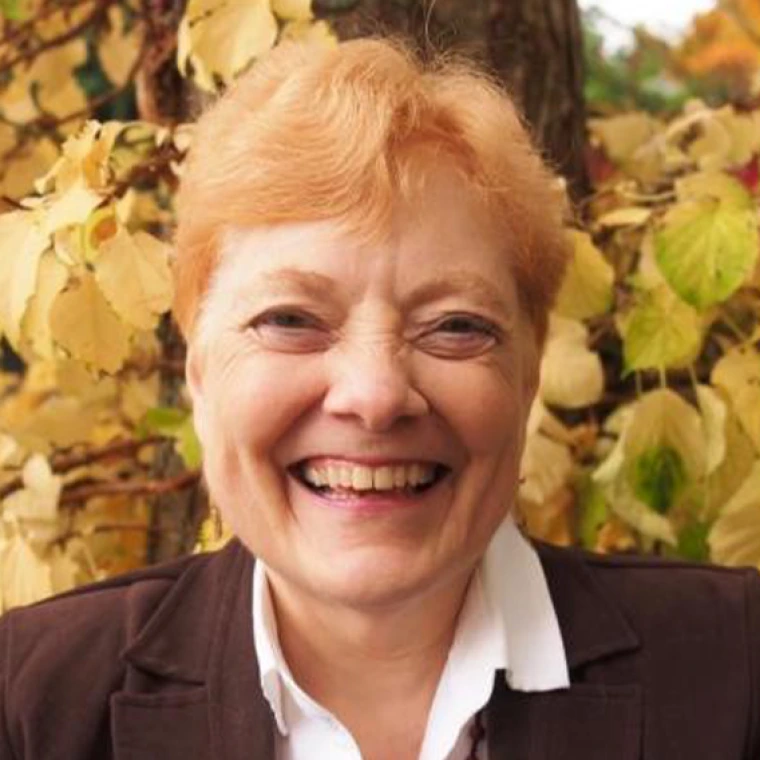Kay Heikkinen

Seattle, WA
Kay Heikkinen began her career pursuing a Ph.D. in French language and literature from Harvard University, with a specialization in the medieval period. Her focus soon shifted to the Islamic world, and her dissertation concerned the history of tenth-century Islamic Spain. She taught at Concordia University Wisconsin, and served as the director of CUW's Madison Center for Adult Learning.
In 2002, Heikkinen returned to the study and teaching of Arabic, and was a 2003-2004 CASA Fellow in Cairo. After CASA, she joined the NELC Department at the University of Chicago in 2004, and taught several summers in Middlebury College's Arabic School. While she retired in 2021, she most recently offered the High Intermediate Classical Arabic sequence and a course exploring several works of short modern Arabic fiction. Thanks to her encouragement, and a few recommendation letters, several of her University of Chicago students participated in CASA.
In addition to teaching, Heikkinen has also published translations of several Arabic novels. She was awarded the Saif Ghobash Banipal Prize for Arabic Literary Translation in 2020 for her translation of the novel Velvet (Huzama Habayeb, 2019). Among other books, she has translated Naguib Mahfouz’s In the Time of Love and Radwa Ashour’s The Woman From Tantoura.
Has your CASA experience helped you in any specific or surprising ways throughout your career?
It really changed my life because I had come to a dead end in the work I was doing, and I really did not know what I was going to be able to do. Without CASA, I wouldn’t have been able to find something as satisfying as teaching Arabic. It made all the difference; it was truly life changing for me.
Do you have a favorite memory from CASA?
Of course, the first response is- all of them! What do you mean, do I have to have a favorite?! But one of the things that was very challenging and also delightful, in a class of Amiyaa, of which I had zero when I went to CASA, we had to transcribe some passages from ‘adab Mohandes, kilimatayn wa bas’ (the literature of Mohandes, Just Two Words). It was extremely hard for me, but I was tickled by his wit. Then there came time when there was a talent show, and I did an imitation of ‘adab Mohandes’ and ‘kilimatayn wa bas.' That was a fun memory.
Also, my Egyptian roommate came to that performance. She saw some of the kids dancing dabke (دبكة) and she just shook her head and said, “I never, ever thought I would see Americans dancing dabke”. So that’s a very good memory.
What advice would you give to current CASA Fellows?
Just jump in and make the most of the experience! It will be different. You know there is a volunteer component and I’m sure I would have fussed and screamed and said, “Oh I can’t do this.” Then I would have done it and been very happy. Whatever the experience happens to be as it’s structured for you, your professors are extremely experienced and skilled. They have seen many, many students, they know the kind of thing that works, they are always willing to help. So, I would say just absorb as much of it as you can.
Do you have any recent academic or professional successes that you would like to share with fellow CASA alumni?
At the moment, the one that’s at the top of my mind is that I was fortunate enough to win the Saif Banipal prize for the translation of ‘Mukhamil’ (مخمل), or Velvet, by Huzama Habayeb (2019). It’s a novel of a Palestinian woman living in a camp. It was incredibly challenging to translate, and it felt just wonderful to receive the prize, have the translation acknowledged, and have the book acknowledged itself, because it’s not the kind of Palestinian story that talks about politics as so many are. This is a human story, that happens to be placed in a Palestinian context.

